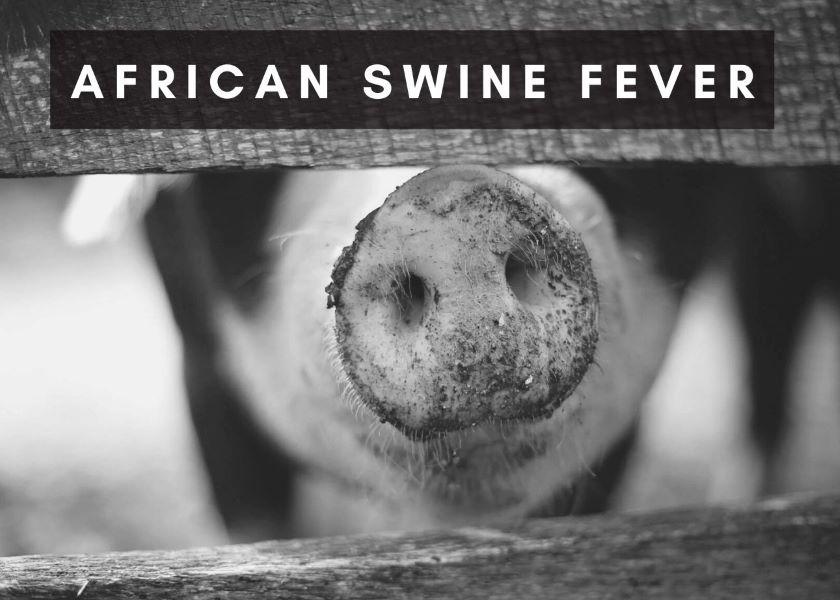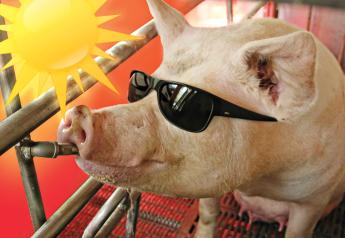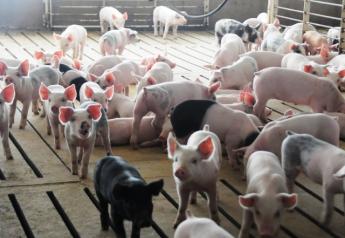Genvax Technologies Receives FFAR Grant to Develop African Swine Fever Vaccine

The Foundation for Food & Agriculture Research (FFAR) awarded a $145,000 grant to Genvax Technologies to develop a self-amplifying messenger RNA (saRNA) vaccine for African swine fever (ASF) in collaboration with the USDA's Agricultural Research Services Plum Island Animal Disease Center (USDA-ARS-PIADC). Matching funds were provided by Genvax Technologies for a total $290,000 investment in innovative ASF vaccine research.
A Deadly Threat to the U.S.
With no commercially available vaccine yet, ASF continues to wreak havoc across parts of the globe. This highly contagious virus causes nearly 100% mortality in swine. Although ASF has not yet occurred in the U.S., an outbreak would cause significant economic harm and could impact food availability, FFAR says in a release.
Due to the prevalence of this virus in other countries and the risk of it spreading to the U.S., experts say it is critical the country is prepared for potential future outbreaks of the virus. ASF is not a threat to human health as it cannot be transmitted from pigs to humans; however, the high mortality rates it causes in pigs would significantly disrupt U.S. pork producers and the economy, the release says.
Economic models estimate the worst-case scenario of a U.S. ASF outbreak would result in a $50-billion loss to U.S. pig producers and allied industry. As well, an outbreak could affect the availability of U.S. pork on the world market, reducing access to animal protein and impacting global food security.
“We have already seen the effects of this highly contagious, deadly virus in countries across the world. If ASF reaches the US, we need to be prepared with an effective vaccine that can protect the US swine industry,” FFAR Scientific Program Director Tim Kurt says in a release. “We have learned from the COVID pandemic that RNA vaccines can be produced rapidly and adapted for different variants; now it’s time to apply those learnings to improve animal health.”
A Potential Tool for Eradication Efforts
Genvax Technologies is developing a non-living vaccine composed of self-amplifying messenger RNA, or saRNA. saRNA vaccines trigger the immune system to make antibodies that can successfully attack and destroy an invading virus, the company says in a release.
Researchers will test the vaccine at USDA-ARS’s Plum Island Animal Disease Center to determine if the vaccine will protect swine when exposed to a virulent, or severe, strain of the virus, researchers note. If successful, Gevnax Technologies will seek approval from USDA-Center for Veterinary Biologics (CVB) to deploy the vaccine throughout the country should an outbreak occur.
This research ensures there will be infrastructure and capacity in place to rapidly respond to an ASF outbreak with next generation saRNA vaccine technology. Additionally, the saRNA technology will be adaptable to variants of the ASF virus occurring in new outbreaks of the disease, the release says.
“The threat posed by African swine fever is extraordinary to both producers and consumers,” Joel Harris, CEO and co-founder of Genvax Technologies, says in a release. “The creation, testing and regulatory approval of the vaccine will be a real joint effort by the USDA’s Plum Island Animal Disease Center, the Center for Veterinary Biologics and Genvax. The goal is to get a vaccine in the field that matches 100% to the specific ASF strain if an outbreak were to occur. This vaccine will also be compatible with diagnostic tests that can differentiate infected from vaccinated animals (DIVA). This makes our vaccine an important tool for eradication efforts and may alleviate any concerns with trading partners abroad.”
FFAR awarded this grant through the Rapid Outcomes from Agricultural Research (ROAR) program, which deploys urgent funding to support research and outreach in response to emerging or unanticipated threats to the nation’s food supply or agricultural systems.
More from Farm Journal's PORK:
Dollar Power Continues to Decrease: What Does That Mean for Pig Farmers?
Mosquito-Borne Virus "Is a Nightmare" For Australian Pig Farmers







